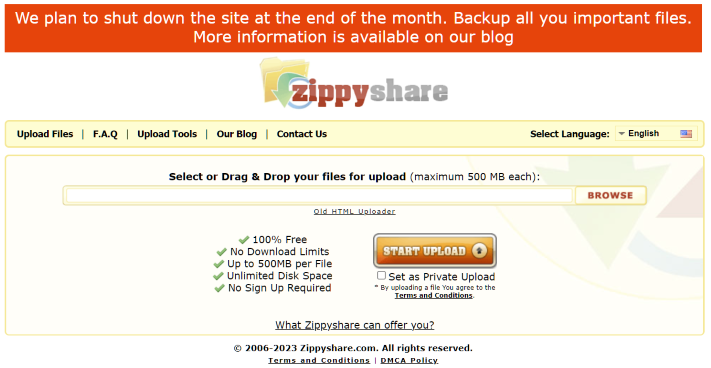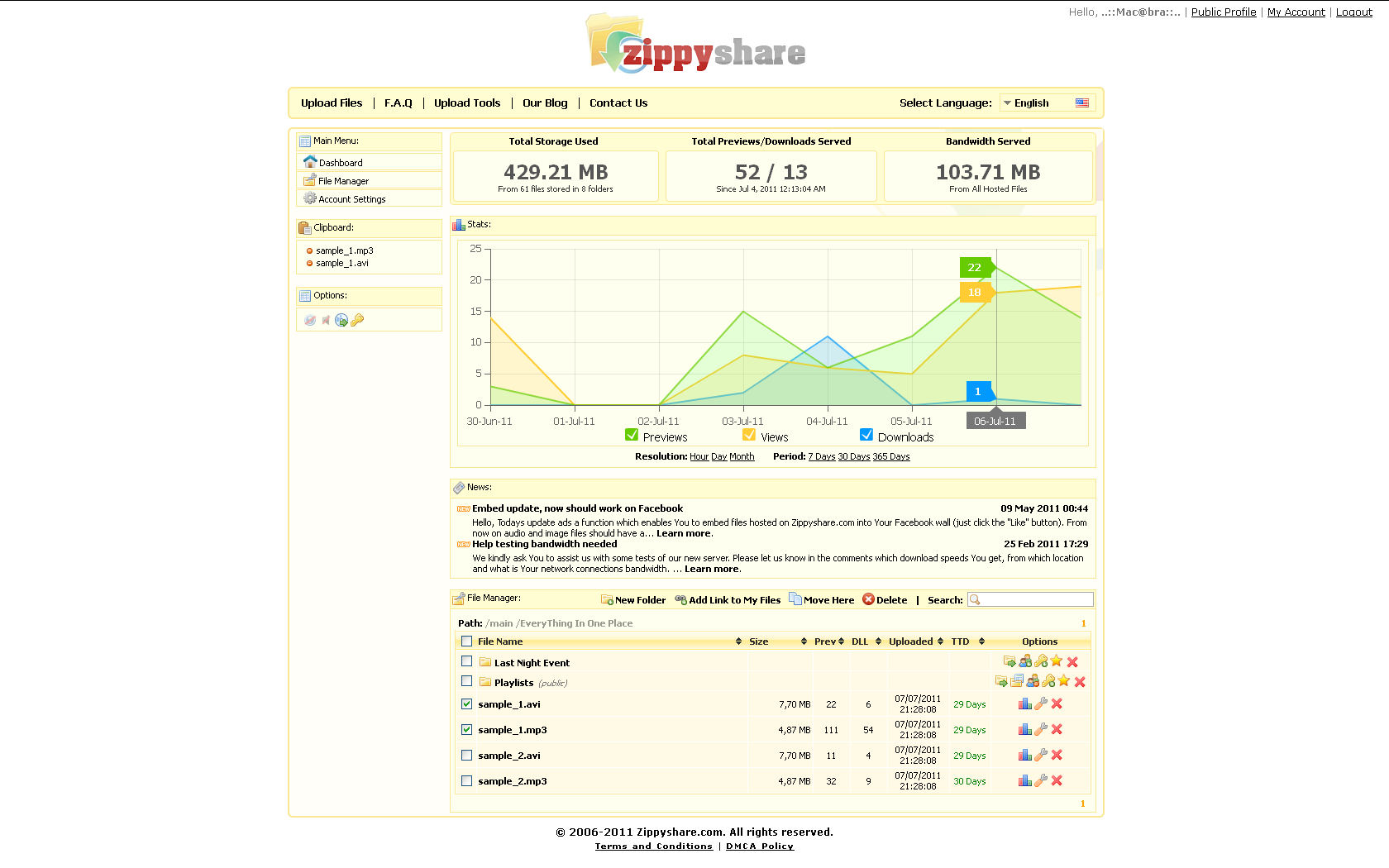When file-hosting service Zippyshare showed its first signs of life in September 2006, accessing the site using an iPhone was impossible; the smart phone’s existence wouldn’t be announced for another four months.
Zippyshare’s success was built on solid yet basic foundations; straightforward free hosting of files, via a clean interface, at zero cost to the user. With relatively few options available elsewhere, Zippyshare was a huge success and to celebrate its first birthday, Zippyshare went BIG.
“A few days ago Zippyshare.com turned one year old,” its operators wrote in 2007. “For Zippyshare’s first birthday we are raising the filesize limit to 100mb.”
Upgrade After Upgrade
After repeatedly upgrading to meet rising demand, Zippyshare launched Zippyshare Uploader, a software application that allowed users to upload files without using a web browser.

Almost three years after the surprise 100mb limit was introduced, Zippyshare doubled its filesize limit to 200mb. A little later, when the internet was consumed with Megaupload being taken down, Zippyshare carried on as if nothing had happened, or it did once its email servers had been fixed.
Zippyshare Breaks Five-Year Silence With Bad News
When Zippyshare’s operators announced the shutdown of the site yesterday, that was the first update posted to the site for almost five years.
“We’ve decided that we’re shutting down the project at the end of the month. Please make backups of your important files, you have about two weeks to do so. Until then, the site will run without any changes,” the announcement reads.

In addition to hardware upgrades, Zippyshare also received visible updates over the years, but in broad terms, the view for users stayed much the same. As the file-hosting market developed and competition increased, being zippy was still good but wasn’t enough.
Simple Formula Meets Innovation and Mass Ad-Blocking
“Since 2006 we have been on the market in an unchanged form, that is, as ad financed/free file hosting. However, you have been visiting in less and less over the years, as the arguably very simple formula of the services we offer is slowly running out of steam,” Zippyshare continues.
“I guess all the competing file storage service companies on the market look better, offer better performance and more features. No one needs a dinosaur like us anymore.”

While Zippyshare was never likely to return to its heyday, it still receives tens of millions of visits every month. The problem is that even when users get a free service, they continue to block ads. For sites like Zippyshare, that almost guarantees a downward spiral, one exacerbated by today’s rising energy costs.
“Sure, we all use [adblockers], but they take away any control the site owner has over the site. Eventually we get to the point where a vicious cycle begins, in order to pay for the server infrastructure you are forced to place more and more ads, then users fire up more and more adblockers and we get to a point like today,” the site continues.
“Over the past year, electricity prices have gone up 2.5 times, which, with a large number of servers, gives a significant increase in costs that we have no way to balance. There are still a bunch of smaller reasons [for closing down], but we could write a book on this, and probably no one would want to read it.
“To sum it up, we can no longer afford to maintain the site.”
Odds Always Stacked Against Zippyshare
That Zippyshare survived this long is a minor miracle in itself. While the platform survived the shutdown of Megaupload, traffic volumes took a dive over the next few years to a background of copyright-related complaints by entertainment industry groups.
Nominated for “notorious market” status by the RIAA in 2013, Zippyshare became a magnet for rightsholder complaints, regular referrals to the U.S. government, and millions of DMCA notices.
To date, rightsholders have requested the removal of more than 14.5 million Zippyshare URLs but for internet users in Europe, worse was on the horizon.
In March, April and June 2019, Zippyshare blocked users from the UK, Germany, and Spain, respectively. Why this action was taken remains unclear but it seems likely that copyright issues were a factor and geo-blocking was seen as the solution.
If Zippyshare closes as promised at the end of the month, it will still have considerable assets at its disposal. The site still enjoys around 45 million visits per month and Zippyshare.com is one of the top 1000 most-visited domains on the internet today.
We asked Zippyshare what will happen to the domain when the site closes down, but at the time of writing, we’re yet to receive a response. As for the team behind the site, they’ve rarely appeared from the shadows but will live on…somewhere.
“Thanks for being with us over the years. See you in the depths of the Internet.”
Zippyshare (2006-2023)
From: TF, for the latest news on copyright battles, piracy and more.
Source : Zippyshare Quits After 17 Years, 45m Visits Per Month Makes No Money










